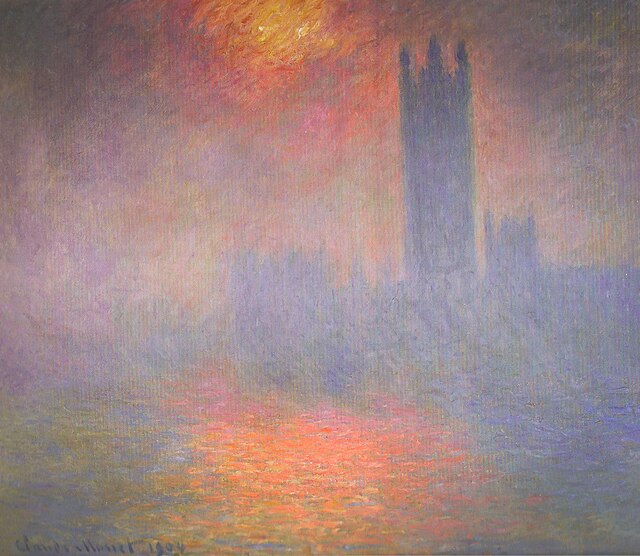Constitutional conventions of the United Kingdom
The United Kingdom has an uncodified constitution. The constitution consists of legislation, common law, Crown prerogative and constitutional conventions. Conventions may be written or unwritten. They are principles of behaviour which are not legally enforceable, but form part of the constitution by being enforced on a political, professional or personal level. Written conventions can be found in the Ministerial Code, Cabinet Manual, Guide to Judicial Conduct, Erskine May and even legislation. Unwritten conventions exist by virtue of long-practice or may be referenced in other documents such as the Lascelles Principles.
A full House of Commons debates Brexit during a rare Saturday sitting. View from the top corner of the House to the left of the Speaker's chair.
The House of Lords debates the conflict in Ukraine. The Lord Speaker can be seen to the rear, seated on the woolsack.
Constitution of the United Kingdom
The constitution of the United Kingdom comprises the written and unwritten arrangements that establish the United Kingdom of Great Britain and Northern Ireland as a political body. Unlike in most countries, no official attempt has been made to codify such arrangements into a single document, thus it is known as an uncodified constitution. This enables the constitution to be easily changed as no provisions are formally entrenched.
Parliament is central to the United Kingdom's democratic constitution. In the Palace of Westminster the House of Commons represents the public in 650 UK constituencies and chooses the prime minister at will. The House of Lords remains unelected but can be overruled.
(London, Houses of Parliament. The Sun Shining through the Fog by Claude Monet, 1904). Parliament (from old French, parler, "to talk") is the UK's highest law-making body.
The UK has committed to international law as a "sovereign" member, to augment its power through cooperation, in the United Nations since 1945. The first UN General Assembly was held at Methodist Central Hall, opened by Prime Minister Clement Attlee.
From 1973 to 2020, the UK was a member state of the European Union (and its predecessor organisation the European Communities), which is committed to "human dignity, freedom, democracy, equality, the rule of law and respect for human rights".






